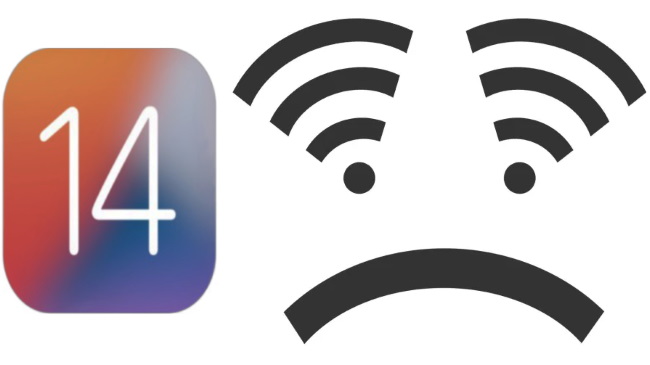iOS 14 automatically switches iPhones to random MAC addresses. This can lead to connection disruptions in home and company networks.
An innovation in iOS 14 can lead to WLAN problems: The operating system automatically sets up a separate, random MAC address for each connected WLAN (or each SSID). In networks that use functions based on MAC addresses, this can lead to connection problems come.

Changing MAC address causes problems in company networks
Depending on the configuration, this affects domestic WLANs, but can also cause problems in large corporate or educational networks in particular, as the network specialist Cisco warns: The network management tool Identity Services Engine will no longer work properly and with the affected devices a disruption of the connection – for example with iPhones that the employee provides himself (BYOD) or in conjunction with mobile device management (MDM).
In this context, it is particularly problematic that when upgrading to iOS 14, a “private WLAN address” is assigned to all SSIDs already known to the device. This is where iOS 14 and iPadOS 14 differ from Android 10, as Cisco notes. Google’s smartphone operating system now also uses random MAC addresses, but only for new WiFi connections. The configuration of already saved SSIDs is not changed by the operating system update.
Disable the private WiFi address on the iPhone
The private WLAN address prevents the physical MAC address of the iPhone or iPad from being revealed. This is intended to make tracking more difficult or even prevent it, for example, in public WLANs or across multiple WLANs from one provider.
iOS has been using the randomization of MAC addresses for a long time, but so far this has only been used as long as the radio module searches for known SSIDs in the area – but no longer as soon as a connection to a WLAN has been established.
So far, there has not been a large-scale solution to quickly eliminate the problems in company networks caused by changing MAC addresses, writes Cisco, but cites several workarounds for customers. Users can deactivate the private WLAN address for each connected WLAN individually in the settings.
The private MAC address assigned for each SSID is unique and static, as Apple announced in a support document after the release of iOS 14. The change in private WiFi addresses originally announced by the manufacturer after every 24 hours no longer takes place in the final version of iOS 14 – the message has been adjusted accordingly. In addition to iOS and iPadOS 14, watchOS 7 also uses private WLAN addresses. The randomized MAC addresses are only changed if you reset the network settings of iOS – or delete all contents and settings of the device, Apple notes.
iOS 14 Private WiFi addresses Can Cause Issues,

